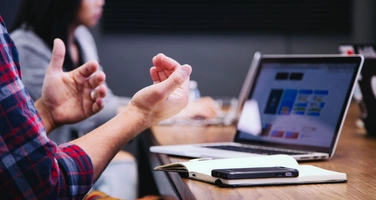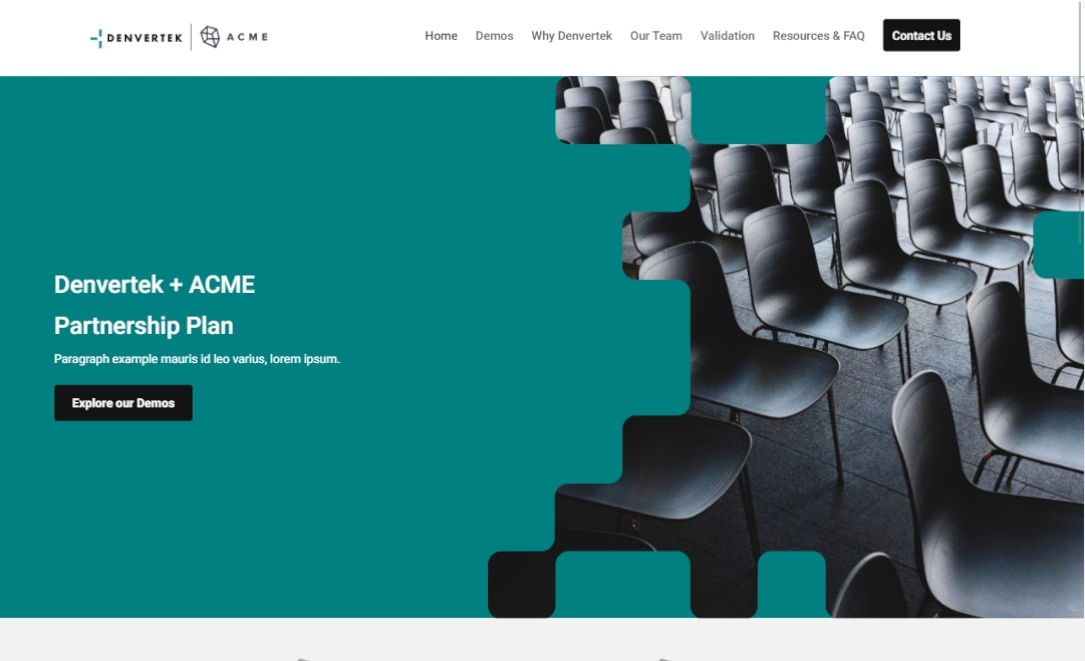Changing economic circumstances are leaving many businesses to wonder which efforts are most worthy of limited resources. Marketing may feel like a dead-end effort during an economic downturn, but it’s critical to your longevity. If anything, marketing becomes more important during a recession. Consumers will make fewer spending decisions and rely on the brands they trust more than ever. A tailored marketing strategy will have to change with the economic state, though, so here’s everything you should know!
Should you market during a recession?
While it may feel like everything comes to a halt during a recession, the world continues to turn and we continue to spend—even if it’s less than we normally would. With that in mind, it’s important to understand the importance of marketing in times of economic slump.
For businesses, this includes knowing how to adjust marketing strategies for both your and your consumers’ benefit, all in the interest of using resources wisely.
Here’s how to make your marketing strategy a little more recession-proof.
A recession’s effect on customer behavior
Less indulgent spending
A recession can put a damper on all the fun we get to have with our money.
For most consumers, a recession is a time to cut back on indulgent or unnecessary spending. With the cost of necessities like gas, groceries, and rent on the rise, there’s less room for date nights and vacations.
As consumers shift away from prioritizing the recreational part of their bank statements, marketing teams may need to change their approach.
John Quelch and Katherine Jocz of Harvard Business Review recommend breaking consumers up into four categories:
- Slam-on-the-brakes: The most vulnerable segment of your market and the most likely to eliminate indulgent spending.
- Pained-but-patient: This segment constitutes the largest part of the market and is generally resilient but realistic about economic growth. Weary but vigilant, these consumers are cautious but less careful with their spending.
- Comfortably well-off: Though still more selective with their spending than normal, this group is slightly more immune to the pains of a recession than other groups. In general, folks in this segment are financially stable or well off even in trying times.
- Live-for-today: This segment of the market—often the younger side—generally resists changing spending habits even during a recession. They are most likely to shell out on experiences and less likely to change their minds about indulgent purchases.
Knowing which of these categories your core audience falls into makes it easier to pivot how you market and brand your products and services.
Increased bargain hunting
Depending on who your target audience is and where their priorities lie in times of economic hardship, bargain hunting becomes consummate to consumer behavior, Most consumers shift their spending habits during recessions, especially slam-on-the-brakes and pained-but-patient consumers.
For these two groups especially, you can expect a growing interest in deals, promotions, and discounts. This might require you to pivot your strategy to meet new expectations.
For those in especially tight financial circumstances, spending on essentials and treats will drastically change. They will prioritize spending less on brand names and finding more affordable options for goods and services they may typically gravitate toward.
The majority of the market (our pained-but-patient group) is less likely to abandon their favorite brands, but they’ll actively look for ways to continue to use them at lower costs. When these deals become available, they are also the most likely to “stock up” on their favorites.
It should be noted, though, that if bargains can’t be found, this group is also known to settle for less expensive alternatives when necessary—especially during the hardest parts of a recession.
Brand loyalty becomes key
It may be surprising, but brand loyalty becomes especially important for most businesses during times of economic downturn.
Keep in mind that three of those four consumer groups identified earlier demonstrated they’ll stick with their preferred brands for essential purchases. When it comes to spending on “treats,” most groups lean toward selective purchases.
This means that brands across all industries should prioritize marketing approaches that drive home their value to consumers; it may even become more important than bargains for some segments of your market.
Loyalty has nothing to do with price. Instead, it’s important to focus on marketing strategies that facilitate strong connections with consumers and demonstrate your continued commitment to meeting their expectations.
Adjusting your marketing strategy in a recession
Market toward your loyal customers
In an uncertain economy, relying on your loyal customers can help you stay afloat. Showing appreciation to your ride-or-dies can make a huge difference in keeping them around as budgets become tighter and competition becomes stiffer. This is the time for you to make the extra effort to extend attention to repeat customers.
Use your CRMs and existing data to gain good insight into who sticks with you through thick and thin, and create personalized experiences for them that show how important they are to your business—because they are!
There are plenty of sure-fire strategies that work here, so try out a couple of these to let your consumers know they are appreciated:
- Make them feel special: Offer unique benefits including shipping specials, warranties, special event offers, early access to sales, and early product reveals.
- Proclaim your appreciation with recognition: Create a unique microsite that is used to highlight your lasting customers and their stories. Everyone loves to be featured somewhere special!
- Create a personalized experience: Create unique, meaningful experiences that highlight your relationship with lasting customers. This can be anything from an engaging content experience to exclusive events.
Don’t underestimate emotional engagement
In trying times, it may seem like a smart move to highlight deals and low prices. In the world of marketing, this is referred to as “transactional messaging.” While it’s true that people seek ways to save in times of financial stress, you may be surprised to learn that there is something more that consumers seek!
According to recent research conducted by the World Advertising Research Center, advertising campaigns that prioritize emotionally engaging consumers end up being more successful than transactional campaigns.
Cultivating an emotional connection with your consumers is a highly effective way for you to build brand loyalty and keep consumers engaged with your brand, even if they aren’t spending like they used to.
It’s true that creating a campaign that highlights two-for-one deals and other promotions can be a lot easier than building lasting bridges with consumers, but you may be surprised at how easy it can be with the right tools!
For example, microsites are easy, cost-effective, and highly immersive content experiences you can create for your consumers. These highly engaging digital campaign tools allow you to create web content that is hyperfocused on a temporary branding effort. It’s best to empower your audience!
Use videos, powerful images, and emotional copy to let your consumers know that you’re a brand they can trust in hard times. You may even want to provide them with a tool they can use, like a budget calculator or resources to help them survive through economic hardship.
Adjust your marketing goals
While the recession changes the market, you should be changing your marketing goals.
Adjusting your marketing goals is a surefire way to keep your promotional efforts strong without stretching dollars where they aren’t needed. Change your KPIs to reflect new consumer habits, realistic quarterly targets, and shifts in your overall approach.
We know. Doing this can be a little bit like spitting in the wind at a time when everything feels like it’s constantly changing. Adjusting your KPIs for a new consumer base and new market behaviors doesn’t have to be guesswork, though.
Start using the data you have related to engagement metrics and consumer actions. If you’re already using Zoomforth for your marketing needs, this can easily be found with your site details. If you aren’t using Zoomforth, this is a great time to make the most of robust analytics tools!
With existing metrics on hand, determine what you anticipate will change most according to projections for the coming fiscal quarter. This will allow you to tailor your approach and meet new marketing needs, like focusing on building brand loyalty.
A tailored approach allows you to allocate your resources where they matter most so that you can keep your funnel as narrow as possible and drive more action from your site visitors. With Zoomforth, you will always have access to insights and analytics, so you can revisit your goals and adjust your strategy accordingly.
Here are some metrics you should consider as you adjust your marketing goals and strategy:
- Top content
- Top referrals
- Top subpage
While you may not be immune to the recession, your marketing strategy will always be a useful tool that helps you drive business.
Zoomforth is here to support your brand through hard times
Keeping your brand resilient through a recession is a challenge. Adjusting your marketing strategy so that you can develop a robust approach in an ever-changing market is a crucial part of staying successful in times of struggle.
Zoomforth is here to help you create lasting connections with your target market, even when their priorities shift. Try a risk-free demo today to see what we can do for you.



